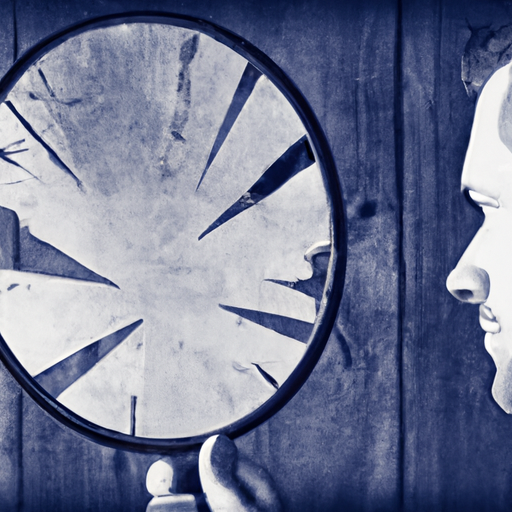In “How Do I Handle And Overcome Failures In My Personal Journey?”, you will explore effective strategies to handle and overcome failures in your personal journey. We all face setbacks at some point, but it is how we respond to them that defines our growth and success. Through this article, you will gain valuable insights and practical tips to navigate through failures, embrace resilience, and cultivate a positive mindset that propels you forward on your path to achievement.
1. Understanding Failure
1.1 Definition of Failure
Failure can be defined as the inability to achieve a desired outcome or meet expectations. It is a natural part of life and something that everyone experiences at some point. Whether it is a personal goal, a professional endeavor, or a relationship, failure is unavoidable. However, it is important to recognize that failure does not define who you are as a person. It is simply a temporary setback that presents an opportunity for growth and learning.
1.2 Embracing the Reality of Failure
Rather than viewing failure as something to be feared or avoided, it is important to embrace it as a reality of life. Failure is not a reflection of your worth or abilities, but merely a stepping stone on your personal journey towards success. By accepting that failure is a natural part of life, you can remove the fear and stigma associated with it. Embracing failure allows you to approach it with a positive mindset and use it to your advantage.
1.3 Types of Failure
Failures can manifest in various forms, and it is essential to recognize the different types of failures you may encounter. There are two main types of failures: internal and external. Internal failures occur when you fall short of your own expectations or personal goals. These failures are often more challenging to overcome because they are deeply personal. On the other hand, external failures are the result of external factors beyond your control, such as economic conditions or unforeseen circumstances. By understanding the different types of failures, you can better navigate through them and learn from each experience.
2. Evaluating and Learning from Failure
2.1 Analyzing the Failure
One of the most important steps in overcoming failure is to analyze it with a constructive mindset. Take the time to reflect on what went wrong and evaluate the factors that contributed to the failure. Look for patterns, identify any mistakes or missteps, and examine the circumstances surrounding the failure. This analysis will provide you with valuable insights and enable you to make more informed decisions in the future.
2.2 Identifying Lessons Learned
When faced with failure, it is crucial to shift your perspective and view it as an opportunity for growth. Look for the lessons that can be learned from the experience. Consider what skills, knowledge, or behaviors you can improve upon based on the failure. By identifying the lessons learned, you can extract value from the failure and use it as a stepping stone towards future success.
2.3 Developing a Growth Mindset
A growth mindset is essential when dealing with failure. Instead of viewing failure as a reflection of your abilities, adopt the belief that failure is an opportunity for personal growth and development. Embrace challenges, persevere through setbacks, and see failures as a chance to learn and improve. By cultivating a growth mindset, you can build resilience and adaptability, which are crucial for overcoming future failures.

3. Managing Emotions and Building Resilience
3.1 Dealing with Negative Emotions
Failure can often evoke strong negative emotions such as disappointment, frustration, or even shame. It is crucial to acknowledge and accept these emotions rather than suppressing them. Allow yourself to feel and process these emotions, as they are a natural response to failure. However, it is important to avoid dwelling on negative emotions for too long. Instead, focus on channeling your energy towards productive actions that will help you move forward.
3.2 Practicing Self-Compassion
In the face of failure, it is vital to be kind and compassionate towards yourself. Treat yourself with the same understanding and empathy that you would offer to a close friend or loved one who experienced failure. Remind yourself that failure is a part of life, and it does not define your worth or abilities. Practice self-care and self-compassion by engaging in activities that bring you joy, nurturing your physical and mental well-being, and speaking kindly to yourself.
3.3 Cultivating Emotional Resilience
Building emotional resilience is essential for navigating through failure. Resilience allows you to bounce back from setbacks, adapt to change, and maintain a positive outlook. Cultivate emotional resilience by developing healthy coping mechanisms, engaging in stress-reducing activities like meditation or exercise, and seeking support from trusted individuals. Embrace challenges as opportunities to strengthen your emotional resilience and develop the capacity to overcome adversity.
4. Setting Realistic Expectations
4.1 Redefining Success
Failure often occurs when expectations are unrealistic or unattainable. Take the time to redefine your definition of success and align it with your values and priorities. Instead of focusing solely on specific outcomes, consider the process, growth, and personal development that can be derived from pursuing your goals. By setting realistic expectations, you can decrease the likelihood of failure and maintain a healthy perspective throughout your personal journey.
4.2 Accepting Limitations
While it is important to aim high and pursue your dreams, it is equally important to recognize and accept your limitations. Understand that you are only human and that there may be circumstances beyond your control that contribute to your failures. By acknowledging and accepting your limitations, you can approach your goals with a realistic mindset. This acceptance will enable you to make necessary adjustments, seek support when needed, and persevere through setbacks.
4.3 Celebrating Small Victories
Failure should not overshadow the progress and achievements you have made along the way. Celebrate the small victories and milestones, even if they may seem insignificant in the grand scheme of things. Recognize and appreciate the effort, dedication, and growth that you have demonstrated throughout your personal journey. By celebrating small victories, you can maintain motivation and a positive mindset, even in the face of failure.

5. Seeking Support and Encouragement
5.1 Building a Supportive Network
It is crucial to surround yourself with a supportive network of family, friends, and mentors who can provide guidance, encouragement, and constructive feedback. Share your failures, challenges, and goals with them. Seek their perspective and leverage their wisdom and experiences to gain valuable insights. Having a supportive network can provide you with the necessary emotional support and motivation to overcome failures and continue moving forward.
5.2 Consulting Mentors or Coaches
Mentors or coaches can offer invaluable guidance and support in times of failure. They can offer an unbiased perspective, share their own experiences, and provide you with knowledgeable advice. Reach out to individuals who have achieved the level of success you aspire to and seek their mentorship. Their guidance can help you navigate through failures, gain new perspectives, and develop strategies for success.
5.3 Joining Support Groups
Consider joining support groups or communities of like-minded individuals who have experienced similar failures. These groups can provide a safe and understanding environment where you can openly share your challenges and failures. Through these interactions, you can gain new insights, learn from others’ experiences, and receive encouragement and support. Joining support groups allows you to realize that failure is a shared experience and that you are not alone in your personal journey.
6. Developing Effective Problem-Solving Strategies
6.1 Breaking Down the Failure into Smaller Challenges
When faced with failure, it can be overwhelming to tackle the entire problem all at once. Break down the failure into smaller, more manageable challenges. This approach allows you to focus your energy on addressing one aspect at a time, ultimately leading to a comprehensive solution. By breaking down the failure, you can also identify specific areas that need improvement and develop targeted strategies to overcome them.
6.2 Brainstorming Alternative Solutions
Failure often presents an opportunity to explore alternative strategies and solutions. Engage in brainstorming sessions where you can generate multiple ideas and approaches to address the failure. Encourage creativity and open-mindedness in exploring different alternatives. Evaluate each potential solution objectively, considering the potential risks and benefits. By brainstorming alternative solutions, you can broaden your perspective and increase the likelihood of finding an effective way to overcome failure.
6.3 Implementing and Adjusting Strategies
After identifying alternative solutions, it is crucial to take action and implement the strategies. Start with the most viable solution and prioritize tasks accordingly. As you implement the strategies, monitor and evaluate their effectiveness. Be prepared to adjust and adapt your approach if necessary. Failure is often accompanied by valuable feedback, and by being flexible and open to adjustments, you can refine your strategies and increase your chances of success.

7. Maintaining a Positive Mindset
7.1 Practicing Gratitude
During moments of failure, it can be easy to focus on the negatives and overlook the positive aspects of your life. Practice gratitude by consciously acknowledging and appreciating the things that you are thankful for. Reflect on your past accomplishments, the people who have supported you, and the opportunities that have come your way. By practicing gratitude, you can shift your perspective and cultivate a positive mindset, even in the face of failure.
7.2 Focusing on Personal Growth
View failure as an opportunity for personal growth and development. Instead of dwelling on the setback, focus on the skills, knowledge, and insights that you have gained from the experience. Recognize that failure is not the end of your journey but a necessary part of it. Embrace the challenges, learn from them, and commit to continuous self-improvement. By shifting your focus to personal growth, you can find motivation and meaning in your failures.
7.3 Challenging Negative Thoughts
Negative thoughts and self-doubt often accompany failure. It is important to challenge these thoughts and replace them with more positive and empowering beliefs. Practice self-talk that is supportive and encouraging. Remind yourself of past successes and the strengths and qualities that you possess. Surround yourself with positive affirmations and visualize yourself overcoming the failure and achieving success. By challenging negative thoughts, you can cultivate a positive mindset that will drive you forward.
8. Embracing Failure as a Stepping Stone to Success
8.1 Shifting Perspective on Failure
To overcome failure, it is essential to shift your perspective and view failure as a necessary stepping stone towards success. Recognize that failure is not an endpoint but a valuable part of the learning process. Embrace failure as an opportunity to gain valuable experiences, learn from mistakes, and refine your approach. By reframing your perspective, you can transform failure into a catalyst for growth and success.
8.2 Recognizing Failure as a Learning Opportunity
Every failure presents a unique learning opportunity. Embrace failure as a chance to acquire new knowledge, gain insights, and improve your skills. Reflect on the specific lessons learned from each failure and incorporate them into your personal development. Recognize that successful individuals often have a history of failures and that failure is an integral part of the journey towards success.
8.3 Embracing Failure as a Catalyst for Growth
Failure provides an opportunity for personal growth and development. It challenges you to reassess your goals, beliefs, and strategies. Embrace failure as a catalyst for growth by embracing discomfort and pushing yourself outside of your comfort zone. Use failure as a motivation to improve, innovate, and strive for greatness. By embracing failure, you can unlock your full potential and achieve greater success in your personal journey.

9. Staying Persistent and Committed
9.1 Setting Clear Goals and Plans
In order to overcome failure, it is important to set clear goals and develop actionable plans. Define what success means to you and establish specific, measurable, attainable, relevant, and time-bound (SMART) goals. Break down these goals into smaller milestones and create a roadmap to guide your actions. Set clear expectations for yourself and establish a sense of direction, even in the face of failure.
9.2 Developing Self-Discipline
Building self-discipline is crucial for staying persistent and committed in the face of failure. Develop strategies and routines that support your goals and hold yourself accountable for your actions. Practice self-control and prioritize tasks that contribute to your long-term success. Embrace discomfort and make a conscious effort to overcome procrastination and distractions. By developing self-discipline, you can cultivate the resilience and determination needed to overcome failure.
9.3 Overcoming Obstacles and Doubts
Obstacles and doubts are inevitable on your personal journey, especially in the face of failure. It is crucial to develop strategies for overcoming these barriers. Identify the specific obstacles or doubts that you are facing and create action plans to address them. Break them down into smaller challenges and develop strategies for overcoming each one. Seek support from your network, draw on your past successes, and remind yourself of your goals and aspirations. By actively overcoming obstacles and doubts, you can maintain momentum and continue moving forward.
10. Celebrating Achievements and Progress
10.1 Acknowledging Personal Growth
Throughout your personal journey, it is important to acknowledge and celebrate your personal growth and progress, even in the face of failure. Take time to reflect on how far you have come, the lessons you have learned, and the skills you have acquired. Compare your current self to the person you were before and recognize the positive changes. By acknowledging your personal growth, you can boost your confidence and maintain a positive mindset.
10.2 Rewarding Milestones
Celebrate your milestones and achievements, no matter how big or small. When you reach a significant milestone or make progress towards your goals, reward yourself in a meaningful way. Treat yourself to something you enjoy or engage in a celebration with your support network. By rewarding milestones, you can reinforce positive behaviors and motivate yourself to continue pushing forward, even in the face of failure.
10.3 Reflecting on Accomplishments
Take the time to reflect on your accomplishments and failures periodically. Reflecting allows you to gain perspective, identify areas for improvement, and set new goals. Journaling or engaging in self-reflection exercises can help you gain clarity and appreciation for the journey so far. By reflecting on your accomplishments, you can maintain motivation, learn from failures, and continue to strive for success in your personal journey.
In conclusion, handling and overcoming failures in your personal journey requires a combination of self-reflection, self-compassion, realistic expectations, support from others, effective problem-solving strategies, and a positive mindset. By understanding the different aspects of failure and implementing the strategies outlined in this article, you can navigate through failures, learn from them, and ultimately turn them into stepping stones on your path to success. Embrace failure as an opportunity for growth, stay persistent and committed, and celebrate your achievements and progress along the way. Remember, failure is not the end, but rather a stepping stone towards a brighter and more successful future.


